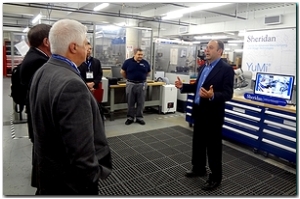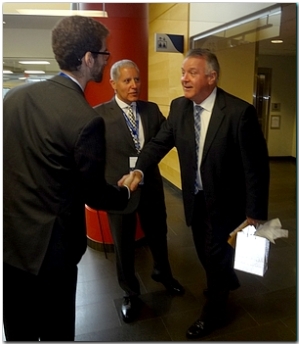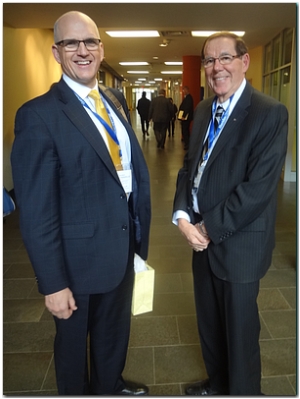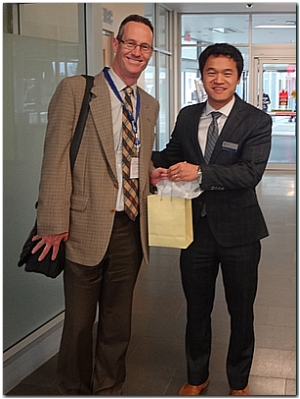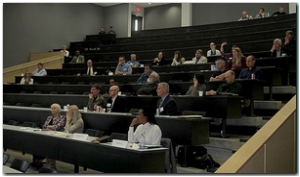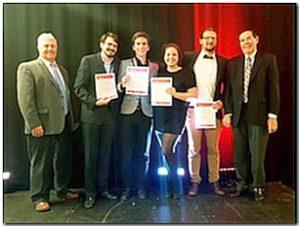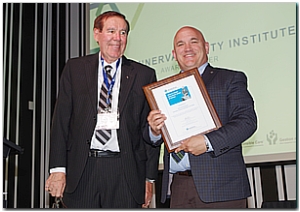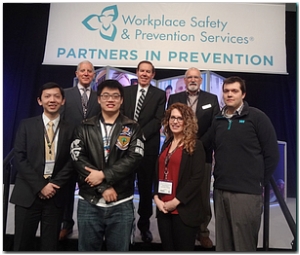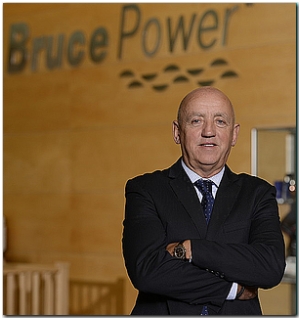MINERVA 2016 E-NEWSLETTER
| In this issue: |
Vol. 16/No. 1 Fall 2016
|
|
It’s been another productive year for Minerva Canada as we continue to increase health and safety management education by influencing the curriculum of post-secondary institutions to ensure that future business leaders create healthier and safer workplaces. This year we have increased the number of resources, such as our Teaching Modules, which academics tell us are so helpful to enhancing their curricula. We continually reach out to industry and organizations through presentations across the country to share the message of the importance of our mission and how to become involved. And, we have created new initiatives designed to directly engage and reinforce health and safety as a mindset for both engineering and business students. Highlights include:
Our many successes are a reflection of the hard work, endless assistance and support from our numerous volunteers from industry, government, academia and H&S professional associations who make up our Board of Directors and Working Groups. I am also very grateful to our many sponsors whose continued support and financial assistance make our efforts at Minerva Canada to advance health and safety education possible. Without this support, Minerva would not exist as an organization. I am also looking forward next year to advance the recommendations made from the Saint Mary’s University study done for us to enhance health and safety education for our Business Schools. A.E. Pasteris HIGHLIGHTS ENGINEERING STUDENT TEACHING MODULES PROJECT: A RESOUNDING SUCCESS Teaching Modules cover a wide range of topics, including Risk Management. With support from our key academic and industry partners, Minerva launched our most ambitious initiative in 2011: the development of health and safety engineering student teaching modules, created to help post-secondary instructors deliver the information so important to Canada’s future engineers and corporate leaders. And we have delivered. The multi-phased $250,000 Minerva Canada Engineering Student Health and Safety Teaching Modules Project now boasts 21 out of 22 modules, available on our website. The wide-ranging topics covered are designed to help future engineers better understand their legal, moral, ethical and societal responsibilities and properly prepare them for the workplace. The modules are also designed to integrate smoothly into existing courses over the four years of undergraduate engineering and assist professors who may lack specific knowledge and confidence when teaching H&S. There is even a voice-over version of the Risk Management presentation, courtesy of the University of Toronto, with more of these in the works for 2017. The project has unanimously been endorsed by the National Council of Deans of Engineering and Applied Science (NCDEAS), The National Council of Deans of Technology (NCDoT), and Technology Accreditation Canada (TAC). Post-secondary institutions from across Canada – Dalhousie, University of Toronto, Ryerson, University of Ontario Institute of Technology, University of Western Ontario, Laurentian, University of Waterloo, University of Manitoba, Queen’s, University of Calgary, University of Alberta, University of British Columbia, and Fanshawe College – were involved in the creation of the modules. Teams comprising engineering professors and grad students developed the modules, alongside industry experts from companies including Nova Chemicals, Trimac, Imperial Oil, Bruce Power, BC Hydro, General Motors, and Shell Canada. Funding has been received from Mitacs, a not-for-profit organization that provides research grants to universities based on an industry need, the Ontario Ministry of Labour, DuPont Canada, Imperial Oil Limited, General Motors, Bruce Power, Nova Chemicals, Shell Canada, Erco Worldwide, BASF, CF Industries, MIRARCO, Canada Post, Chemtrade Logistics, Chemistry Industry Association of Canada, H.L.Blachford, Dow Chemical, Nexen, the Canadian Society of Safety Engineering (CSSE), and the Board of Canadian Registered Safety Professionals. What’s next?
All modules are free for any professor to download from Minerva’s website and use and most of the modules also have a set of questions to test students’ learning. For more information about the modules and how to support this initiative, contact minerva@safetymanagementeducation.com
A wide array of presentations from industry, government and academic representatives cover how Safety, Health and Environmental Management (SHE) concepts are being applied in the workplace. The Forums provide an opportunity for professors, graduate students and academics to hear what industry and government seek from new graduates and to network with colleagues from other schools to discuss how best to introduce health and safety management into their program. The Minerva Forum Planning Committee includes members from Minerva’s Board of Directors as well as Minerva’s academic hosts from the four universities and colleges. Sheridan Forum Highlights
Flynn noted that in 2015 the Labour Ministry awarded Minerva a grant to improve occupational health and safety by encouraging colleges and universities to incorporate health and safety management education into their core curricula. The ministry will be granting funding again this year so Minerva can continue to spread the message that workplace health and safety is critical for any successful company. “We are way beyond the way of thinking that health and safety is an unnecessary cost,” Flynn said. “The smartest companies in this province realize that health and safety is profitable. It’s no accident that some of the best run, most profitable and most productive companies are also the safest companies.” Some of the messages shared by speakers at the Sheridan Forum included::
Minerva extends it thanks to Forum hosts Dr. Jeff Zabudsky, President & Vice-Chancellor, the Sheridan College Institute of Technology and Advanced Learning, and Dr. Iain McNab, Dean, Sheridan Faculty of Applied Science & Technology.
Cross-Canada Forums: Organizers Share Biggest Value 
UBC Forum participants “Having UBC host the first Minerva Learning Forum in B.C. was not only an honour but highlighted the changing attitudes of Universities and other Education Institutes with regards to their responsibilities for including health and safety as part of the academic experience. Bringing together educators, regulators and industry together proved to be a fruitful experience for all and will hopefully lead to more collaboration in the future.” – Richard Colwell, Safety and Facilities Officer, UBC Engineering, Faculty of Applied Science. Conestoga College Forum
Calgary Forum 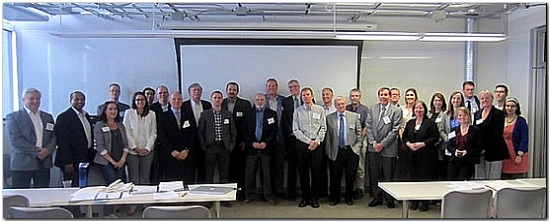
University of Calgary Forum participants “The biggest value was engaging more faculty members, especially some of the key people, in a discussion that emphasized the need for health and safety education for our engineering students. The industry panel discussion helped the faculty members to better understand what safety education is needed. Schulich School of Business will be offering a course on engineering safety this winter, and I’m pleased that it will adopt some of Minerva’s materials available in the teaching modules.” – Anis Haque, Senior Instructor and Associate Head, Electrical and Computer Engineering Dept, University of Calgary. Sheridan College Forum 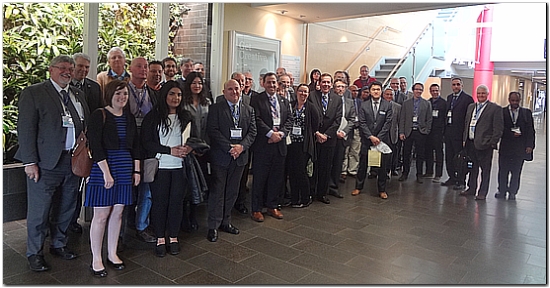
Sheridan College Forum participants “Sheridan faculty members benefitted enormously from the event by knowing how advanced the Minerva Learning Modules are and also appreciate the fact that all the modules are free to access and use. Attendees were also impressed by the industry and government support of Minerva’s programs. An additional benefit to hosting a Learning Forum at Sheridan is that it reinforces the notion that Canadian community colleges play a crucial role in educating post-secondary students about safety management systems. In many ways, safety education is potent aspect of the experiential and practical learning that takes place in institutions such as Sheridan.” – Daniel Liao, Manager, Chemical Labs, Sheridan College Institute of Technology & Advanced Learning, Davis Campus. MINERVA-CIAC RESPONSIBLE CARE CASE STUDY COMPETITION
Congratulations go to first place winners M. Gagnon-Dorval, O. Gazil, D. Leroux, and J. Tremblay-Martel.from l’Ecole Polytechnique who were awarded $500. In second place were K. Dritsas, K. Wei, A. Kostruba and K. Musalem from the University of Toronto and in third, T. Donnelly, D. Tu, A. Vasile, and W. Klanac of the University of Waterloo, who were awarded $300 and $200 respectively. A new case study for the Minerva- CIAC Responsible Care competition, along with the competition guidelines, will be sent to all Canadian Engineering Schools next summer by the Chemical Institute of Canada in advance of the 2017 Chemical Engineering Conference. 6th Annual Minerva Canada Education Award of Honour Presented
A tireless Minerva supporter, Masterson has made numerous presentations at its Learning Forums and Summer Institutes, helped provide keynote industry speakers for and funded and sponsored Minerva’s educational programs. And he continues to support Minerva, including sponsorship of the new Responsible Care Case Study Competition Minerva- CIAC Responsible Care award for engineering undergraduate students from across Canada. “Bob really understands what Minerva is doing for academia and appreciates the importance of industry partnerships with us,” said Minerva Chairman and President Tony Pasteris, who presented the award at the Minerva Learning Forum at Sheridan College in May. “With Bob’s help, CIAC now looks at Minerva as an important partner for its Responsible Care educational activities. Bob also believes in our mission and is truly one of Minerva’s most essential ambassadors.” James Ham Safe Design Engineering Student Award Winners Selected
The University of Regina team of Ryan Schmidt, Tanner Thomsen and Marlee Wasnik, engineering undergraduate students, clinched the top prize of $3,500 for designing an innovative, portable and cost-effective fall restraint system to reduce and potentially prevent injuries and fatalities when working on trailer flatbed trucks. “The team had ingenuity and dedication and were very thorough and conscientious,” says instructor Denise Stilling, the team’s supervisor and Associate Professor in Industrial Systems Engineering. “It is very gratifying to see a project go from conceptualization to a prototype to commercialization in the future.” Here is Minerva’s interview with the team: Minerva: Why did you pick this particular project? Minerva: What do you hope people take away from your project? Minerva: What was your biggest take-away? Minerva: What will you do with the prize money? Minerva: What do you feel is the biggest value of an awards program like this? Second prize of $1,500 went to the team of Jeremy Wang, Ryan Williams, Shuyi Wu and Noah Yang, engineering undergraduate students at the University of Toronto, for designing an attachment for mop wringers (the PowerWring) that can assist in preventing lower back and repetitive strain injuries in the janitorial industry. Here is what the team had to say: Minerva: Tell us about your project’s background. Minerva: How did it feel to get this honour? Minerva: What do you hope people will take away from your project? Minerva: Do you think an awards program like this is valuable? Minerva: What are your next steps? Another university team deserved an honorable mention during Minerva’s review of the submissions for this award. The University of Waterloo engineering team of Dena Arghastani, Mahdi Mahdi, Brant Wunderlich and Peter VanderMeer conducted a very thorough hazard analysis and dispersion modeling in arriving at a design solution to mitigate and reduce the potential risk of an ammonia release from a chemical processing facility in Canada. “Our Minerva awards committee members were very impressed with the thoroughness of all three university submissions and congratulate all these students,” says Minerva President Tony Pasteris. “They will clearly be among our future champions of health and safety in the workforce.” Students interested in entering the 2017 competition should visit www.safetymanagementeducation.com/james-ham-safe-design-awards/ for rules, entry form and important dates. Minerva Supports Business Case Competition 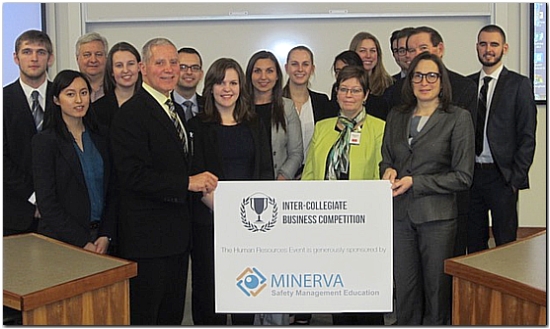
ICBC contestants (above) attended a Minerva feedback session following their presentations Teams from the University of Regina, Queen’s and Saint Mary’s universities clinched the top three spots in the Minerva-sponsored Health and Safety Human Resources event at this year’s Inter-Collegiate Business Competition (ICBC) held at Queen’s University. ICBC is Canada’s oldest and longest-running undergraduate business case competition, featuring eight different competitive events in which students can compete annually. It attracts close to 250 attendees, including competitors from around the world as well as judges, faculty advisors, student organizers and volunteers from over 40 universities and 10 countries. Minerva Board members Deborah McPhee, Nina Mankovitz, Peter Sturm, Larry Masotti, and Tony Pasteris judged this year’s six presentations in the Human Resources Venue. Brock University and the University of Windsor are preparing case studies for the 2016-17 competition. The 2015-16 ICBC case studies sponsored by Minerva Canada are on our website. 2016 Robert W. Campbell Award from the National Safety Council The award selection process includes rigorous assessments such as site visits and comprehensive evaluations of an organization’s integration of its EHS management system and the impact it has on the bottom line. The award is promoted by an international partnership of 21 organizations, including Minerva Canada. It seeks nominees worldwide and, this year, Minerva’s Board members Tony Pasteris and Peter Sturm judged preliminary submissions. For more, visit www.thecampbellinstitute.org. Health and Safety Ambassador Retires
Where We’ve Been This Past Year
MEET OUR 2016-2017 MINERVA NATIONAL BOARD President & Chair: A.E. (TONY) PASTERIS Vice President: PETER STURM Secretary/Treasurer: LARRY MASOTTI Meeting Coordinator: JOYCE CARRINGTON JULES ARTNZ-GRAY ANDREW COOPER RENZO DALLA VIA DR. ANIS HAQUE NINA MANKOVITZ IAIN MCNAB DR. DEBORAH MCPHEE DR. GRAEME NORVAL VIC PAKALNIS SANDRO PERRUZZA MARCEL E. POULIOT DR. MARC ROSEN DR. DOUGLAS RUTH FRANK SAUNDERS DR. ROBERT SCHULZ LYNN SMITH WENDY TOBIN KATHY TULL DAVE TURNER TROY WINTERS A heartfelt thank you is extended to outgoing Board members Ayumi Bailly and Ana Matos-Clark from the Ontario Ministry of Labour, Steve Horvath, President & CEO, Canadian Centre for Occupational Health & Safety and Jim Hopkins, Chief Safety Officer, OC Transpo. Minerva Canada greatly appreciates all the time and effort all of them have put in to improving the organization and making healthy and safe workplaces a stronger focus in post-secondary education. Minerva welcomes Jules Artnz-Gray of the Ontario Ministry of Labour, Iain McNab of Sheridan College and Kathy Tull of WordSafeBC to our Board. We look forward to their contributions towards further strengthening Minerva Canada. Minerva Canada’s sponsors from industry, academia, government and health and safety associations include a growing list of organizations committed to principles that combine efficiency and productivity within an effective Safety, Health and Environmental (SHE) management culture. Minerva Canada was initiated in the mid ‘80’s from Project Minerva, first started in the USA by the National Institute for Occupational Safety and Health (NIOSH). We extend a special note of appreciation to the five founding sponsor organizations of Minerva Canada, with which we continue to enjoy a fruitful relationship.
And it is with deep gratitude that we acknowledge all our sponsors and close-working partners:
University and college financial and/or in-kind supporters of Learning Forums:
RESOURCES
Managing the Gap A collaborative undertaking between Minerva Canada and Saint Mary’s University in Halifax, the “Managing the Gap” project examined the current extent of occupational health and safety (OH&S) content in Canadian university business curricula. In addition to reviewing formal course descriptions, it also surveyed business professors about their teaching of OH&S and industry representatives about the need for OH&S education from business graduates they hire. The results suggest that OH&S content is being taught in business schools, although to a very limited extent. It is covered to a certain degree in some professional programs (specialized safety programs, human resource certificate programs) but not outside these disciplines, including in graduate programs. Some of the recommendations advanced to enhance the motivation, ability and opportunity for business schools to offer a more comprehensive education in this area include:
Minerva has begun to implement some of the report’s recommendations and using business professors to do the work. More information will become available on Minerva’s website as new educational material is developed for business professors. Two New Case Studies Available
Minerva Website Completely revamped in 2016, our website at www.safetymanagementeducation.com continues to feature useful information and a host of new resources to assist with teaching health and safety in colleges and universities. Features include:
We appreciate your feedback. Tell us what you think at minerva@safetymanagementeducation.com.
Minerva Canada Safety Management Education Inc. Chairman & President: A.E (Tony) Pasteris Editor: Susan Baka Minerva Canada gratefully acknowledges the support of Ontario’s Workplace Safety and Prevention Services for the design and printing of this Annual Review. |


